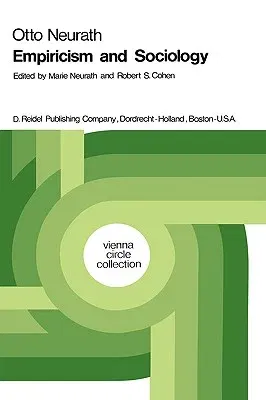Empiricism and Sociology (1973)Hardcover - 1973, 31 December 1973

Qty
1
Turbo
Ships in 2 - 3 days
In Stock
Free Delivery
Cash on Delivery
15 Days
Free Returns
Secure Checkout

Part of Series
Vienna Circle Collection
Part of Series
Vienna Circle Collection,
Print Length
475 pages
Language
English
Publisher
Springer
Date Published
31 Dec 1973
ISBN-10
9027702586
ISBN-13
9789027702586
Description
Product Details
Book Edition:
1973
Book Format:
Hardcover
Country of Origin:
US
Date Published:
31 December 1973
Dimensions:
23.39 x
15.6 x
2.69 cm
ISBN-10:
9027702586
ISBN-13:
9789027702586
Language:
English
Location:
Dordrecht
Pages:
475
Publisher:
Weight:
866.36 gm